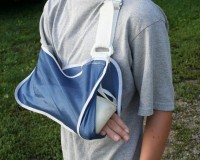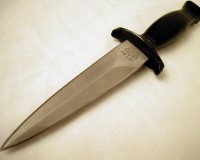An individual arrested for striking another person in New York is often charged with assault. However, there are different degrees of assault charges, each of which carry its own set of potential penalties and legal considerations. A strong defense attorney will help you find the best path toward resolution of your particular case.
Types of Assault Charges
There are many different varieties of assault charges, including:
- Assault in the third degree / 3rd Degree Assault (PL 120.00)
- Assault in the second degree (PL 120.05)
- Assault in the first degree (PL 120.10)
- Vehicular assault in the second degree (PL 120.03)
- Vehicular assault in the first degree (PL 120.04)
The prosecutors decide which charges to apply based on a variety of factors including the extent of the injury, the motivation for the attack, and whether a weapon was used. Usually an individual facing an assault charge will also be charged with attempted assault, menacing or harassment. These additional charges are lesser charges, which will not increase your sentence, but are included to convict you of a lesser offense if the prosecutor fails to prove the top charge.
Many attorneys will be quick to encourage you to take a plea, but make sure you know all the facts before you do. Often times a guilty plea will carry long lasting consequences such as criminal record or order of protection. The attorneys at Law Offices of Daniel A. McGuinness, PC get all the facts before making a recommendation.
In need of Criminal Defense Lawyers?
Contact us today for a free consultation: (212) 679-1990
3rd Degree Assault – Assault Charges in the Third Degree – New York Penal Law 120.00
A person is guilty of assault in the third degree (3rd degree assault) where he intentionally or recklessly causes injury to another person, or if he is criminally negligent with a weapon. In NY, the crime of assault in the third degree is found in NY Penal Law § 120.00.
Assault in the third degree is the top charge when there are only minor injuries, weapons are not used, and the victim does not fall into a special protected category. Street fights between strangers are typically charged as such. Commonly, assault in the third degree is accompanied by charges of menacing, harassment and an attempt to assault. These lesser charges can be used to prosecute you if the top charge is dismissed.
Possible penalties for assault in the third degree:
Jail Time for 3rd Degree Assault
Assault in the third degree is an A misdemeanor, meaning that it is punishable by up to one year in jail, as per NY Penal Law §§ 60.01(3)(a), NY Penal Law §§ 60.01(3)(a) and 70.15(1). In NYC, however, a first arrest for assault in the third degree will usually not result in any jail time.
Probation for 3rd Degree Assault
A conviction or plea to the charge of assault in the third degree could also result in probation for three years, pursuant to Penal Law §§ 60.01(2)(a)(i) and 65.00.
Fine, Surcharge and Restitution for 3rd Degree Assault
A fine of up to $1,000 may also be imposed, pursuant to Penal Law §§ 60.01(2)(c), 60.01(3)(b), 60.01(3)(c), and 80.05. A mandatory surcharge of $175 ($180 outside of NYC) and a crime victim assistance fee of $25 must be paid, pursuant to Penal Law §§ 60.35(1)(a)(ii), 60.35(6), and 60.35(9). A court may also order restitution be paid to the victim.
Orders of Protection for 3rd Degree Assault
While not technically a penalty, it is important to realize that a plea or conviction to an assault will almost always come with an order of protection against the complaining witness. This order puts restrictions on the accused party’s ability to interact with the complaining witness. For example, it will limit or even forbid you from having any contact with the victim.
Arrested?
Call us now: (212) 679-1990
Assault Charges in the Second Degree – PL 120.05
(2nd Degree Assault)
Assault in the second degree is a class D felony, which is punishable by up to 7 years in prison. In New York, the crime is found in NY Penal Law § 120.05.
When Is Assault in the Second Degree Raised to Assault in the Third Degree?
There are three general factors which rase an assault from an assault in the third degree to an assault in the second degree. The presence of any one of these factors will raise an assault to an assault in the second degree. The presence of more than one of these factors will lead to more serious charges.

1. Serious Injuries
Assault in the second degree can be charged where “serious physical injuries” resulted from the assault, and the assault was carried out with the intent of causing such injuries. The law defines “serious physical injuries” as “a physical injury which creates a substantial risk of death, or which causes death or serious protracted disfigurement, protracted impairment of health or protracted loss or impairment of any bodily organ.” (NY Penal Law 10.00(10)). A cut or bruise would not qualify as a serious physical injury, but a broken bone would.
 2. Weapons Used
2. Weapons Used
Assault in the second degree can also be charged where a “deadly weapon” or “dangerous instrument” is used. A dangerous instrument is defined broadly at NY Penal Law 10.00(13) to include any object that could be used to cause serious physical injury. The use of the object does not need to actually cause a “serious physical injury.” If a person intends to cause a physical injury and causes even a minor physical injury with a weapon, they are guilty of second degree assault.
3. Official, Elderly or Minor Victim
NY Penal Law § 120.05 states that the assault of a New York State official is a second degree assault where the assault on that official intends to prevent him from performing his lawful duty. The list of NY officials includes police, EMTs, firefighters, and train operators. The full list is found at Penal Law § 120.05(3) and (11). Similarly, assault on a victim younger than 11 or older than 65 may qualify as second degree assault. Causing serious physical injury to such a person will result in more serious charges.
How to Fight Your Assault Case
Every assault case is different, but most require careful examination of the following issues:
- Is the complaining witness being truthful or do they have a reason to lie?
- Was the complaining witness really injured?
- What started this fight?
- Was the alleged assailant properly identified?
An experienced attorney at Law Offices of Daniel A. McGuinness, PC can identify the most important issue in your case and use it to get you the best possible resolution.
Contact us today for a free consultation: (212) 679-1990
Additional Information
Penal Law Article 120: Assault and Related Offenses
Have you been charged with Assault in New York?
Contact us today for a free consultation: (212) 679-1990
